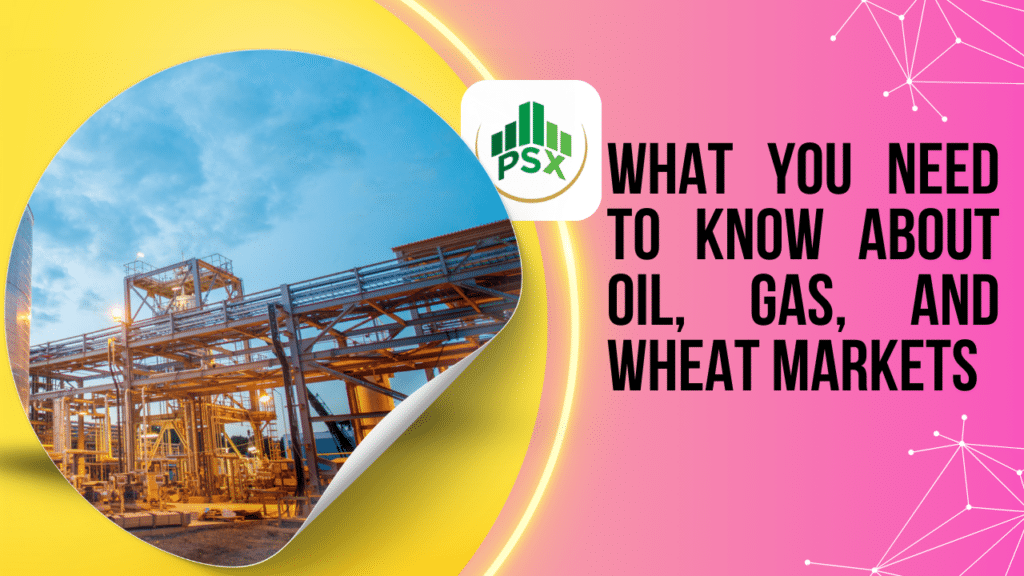A Simple Explanation of Commodity Trading
Introduction
Commodity markets are the backbone of the global economy, impacting everything from energy production to food prices. Understanding the basics of commodities like oil, gas, and wheat can help you grasp how these vital markets function and their significance in our daily lives. In this guide, we’ll explore what commodity trading is, how it works, and its relevance to individuals and businesses.
What Are Commodities?
Commodities are basic goods or raw materials that are interchangeable with other goods of the same type. These are divided into two main categories:
- Hard Commodities:
- Extracted or mined, such as oil, gas, and metals.
- Soft Commodities:
- Agricultural products like wheat, corn, and coffee.
Commodities are traded globally, and their prices are influenced by factors like supply and demand, geopolitical events, and seasonal trends.
Key Commodities: Oil, Gas, and Wheat
1. Oil
- Importance:
Oil is a primary energy source, driving transportation, manufacturing, and electricity generation. - Market Dynamics:
- Prices are influenced by OPEC policies, production levels, and geopolitical tensions.
- Crude oil benchmarks like Brent Crude and WTI are widely traded.
- Impact on Everyday Life:
- Fluctuating oil prices affect fuel costs, heating bills, and even transportation fares.
2. Natural Gas
- Importance:
Natural gas is essential for heating, power generation, and industrial applications. - Market Dynamics:
- Prices are seasonal, often spiking during winter months.
- Supply disruptions, such as pipeline issues, can cause volatility.
- Impact on Everyday Life:
- Changes in gas prices directly influence household energy bills and industrial costs.
3. Wheat
- Importance:
Wheat is a staple food crop, used in bread, pasta, and countless other products. - Market Dynamics:
- Weather conditions, trade policies, and global demand drive wheat prices.
- Major producers include the US, Russia, and Canada.
- Impact on Everyday Life:
- Higher wheat prices can lead to increased costs for bread, flour, and other essentials.
How Does Commodity Trading Work?
Commodity trading involves buying and selling raw materials on exchanges like the New York Mercantile Exchange (NYMEX) or the Chicago Board of Trade (CBOT). Here’s how it works:
- Spot Markets:
- Commodities are bought and sold for immediate delivery.
- Futures Contracts:
- Traders agree to buy or sell a commodity at a predetermined price on a future date.
- Participants:
- Hedgers: Farmers or companies use commodities to lock in prices and reduce risk.
- Speculators: Traders aim to profit from price fluctuations.
Why Are Commodity Markets Important?
- Price Discovery:
- Markets determine the fair value of commodities based on supply and demand.
- Economic Stability:
- Stable commodity prices ensure predictable costs for consumers and businesses.
- Hedging Against Inflation:
- Commodities often retain value during inflation, making them a good hedge.
Benefits of Commodity Trading
- Portfolio Diversification:
- Commodities offer an alternative to stocks and bonds, reducing overall portfolio risk.
- Liquidity:
- Commodities are highly liquid assets, making them easy to buy and sell.
- High Leverage:
- Futures trading allows traders to control large positions with a smaller investment.
Risks of Commodity Trading
- Volatility:
- Prices can fluctuate widely due to geopolitical events or natural disasters.
- Leverage Risks:
- High leverage can amplify losses as well as gains.
- Market Knowledge:
- Lack of understanding about the factors driving commodity prices can lead to poor decisions.
Tips for Beginners in Commodity Trading
- Start Small:
- Invest small amounts initially to minimize risk.
- Educate Yourself:
- Learn about market trends, geopolitical influences, and seasonal factors.
- Use Risk Management Tools:
- Utilize stop-loss orders to limit potential losses.
- Diversify Your Commodities:
- Trade across multiple commodities to reduce dependency on a single market.
Conclusion
Understanding the dynamics of commodities like oil, gas, and wheat is essential for anyone looking to invest in these markets. Whether you’re a trader, a business owner, or a curious learner, grasping the basics of commodity trading can help you make informed decisions. With proper knowledge and risk management, commodities can be a valuable addition to any investment portfolio.







